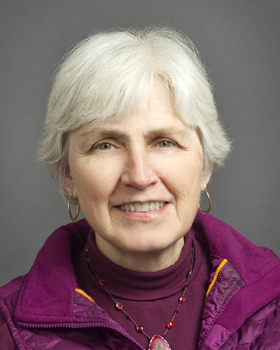PMB Researchers explore ways to reduce the use of fertilizers

By Armand Parajon
A mid-career grant for a UC Berkeley researcher will go toward finding ways to reduce the use of fertilizers in agriculture, while still maintaining high yields.
Plant & Microbial Biology Professor Sheng Luan has been awarded $1.9 million from the National Science Foundation to figure out how plants can take up nutrients more efficiently while using less fertilizer.
Cooperative Extension Specialist Peggy Lemaux, also from PMB, is co-principal investigator for the project.
The Problem with Fertilizers
All major crop species rely heavily on fertilizers to realize economically viable yields. Years of crop production and soil erosion have gradually depleted soil’s natural reserve of minerals. Without these important minerals, plants cannot grow as efficiently, resulting in lower yields. To deal with this issue, farmers liberally use fertilizers, which contain the minerals needed for plant growth.
Though fertilizer can enable crop production to meet economic demand, it can also harm the environment -- fertilizer can poison aquatic life, reduce soil fertility, harm human health, and expedite climate change.
Exploring Solutions
Luan and Lemaux foresee a future where plants can more efficiently uptake nutrients with a lot less fertilizer. The information gained from their research may pave the road for the genetic development of more efficient mineral uptake mechanisms.
They are currently researching how plants uptake a specific mineral, potassium (K+), using rice as their system for study. This work is heavily centered on an investigation of the molecular mechanisms and protein activity that are responsible for mineral uptake on a cellular level.
Lemaux says that the uptake mechanisms of potassium, an important nutrient in fertilizers, are not fully understood. She also notes that worldwide supplies of potash, the source of potassium for fertilizers, are “diminishing, leading to a 350% increase in price since 2001.”
"Some rice cultivars have higher yield under low-K conditions, as compared to other cultivars. In other words, they are more tolerant to low-K, poor soil. We are trying to identify the genes responsible for this higher K-use efficiency and utilize these genes for crop improvement. The goal is to breed rice cultivars that require less fertilizer," Luan said.
Even though this research effort will not directly stop the negative effects of fertilizers, it may temper them to more agriculturally sustainable levels. Furthermore, the decreased costs of agricultural production could save farmers money.
Additional Information


GRANT TITLE: Professor Sheng Luan, Plant and Microbial Biology, $1,880,121, NSF, “MCA-PGR Genetic and Genomic Approaches to Understanding Low-K Tolerance in Rice” Co-Principal Investigator Peggy Lemaux
Luan received a "Mid-Career Award" from the Plant Genome Program of the National Science Foundation. The funding agency will provide $1.9 million in four years to support Luan's research project entitled "Genetic and genomic approaches to understanding low-K tolerance in rice".
Lemaux will provide expertise on cereal transformation and other technology platforms.
Potassium (K+) is the most abundant mineral cation in cells. Animals acquire K+ from their diets that can come from plants or other animals. Plants acquire K+ from the soil through uptake by roots. Because most of the farmland is depleted of K+ after years of crop production, fertilizers are heavily used to support further farming activities, raising environmental issues and endangering agricultural sustainability.
Luan's work centers on molecular mechanisms underlying K+ uptake and distribution by transport proteins in plant cells. As K+ is not metabolized into other forms, K+ trafficking by ion channels and other transporters holds the key to K-use efficiency in plants. Understanding how plants uptake and utilize K+ will help breed crops with improved nutrient use efficiency, minimizing fertilizer use and helping to save our environment.
